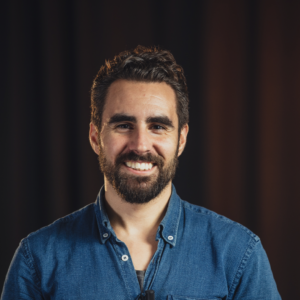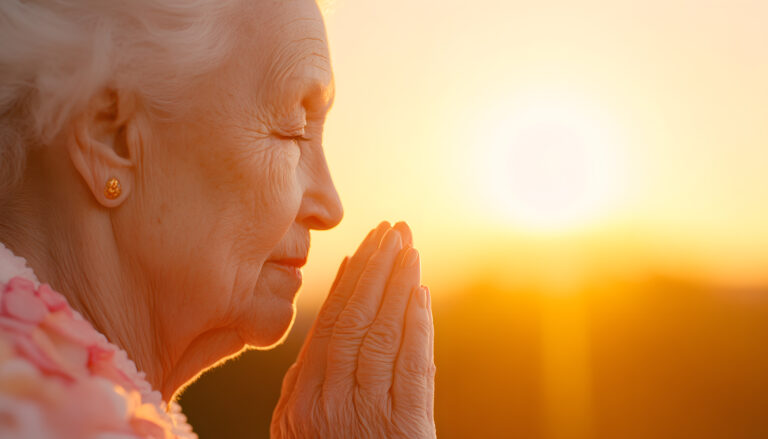Article Summary
What is it we fear in death? Most of us use denial as a big part of our strategy, but are there better ways to break free from the fear? Here we inquire into its root causes and look at some perspectives to (mostly) liberate ourselves from this fear—and find peace. (Guest blog by Niccolas Albiz.)
++++++
You know how it is: You have some spreadsheet work to do so you fill the background silence with YouTube videos or some music. Today it just so happened that the fates had lined up three consecutive videos that all touched upon the concept of death and mortality.
It was just one of those days for YouTube, I guess. So now here I am, needing to write down my thoughts.
A Quest to Escape Aging
It started with Dr. Chris Raynor’s commentary on Bryan Johnson. Bryan Johnson is a tech entrepreneur who spends about $2 million a year trying to slow down and even reverse his own aging. All driven by the fear of dying and trying to reach an escape velocity beyond aging.
The comments on YouTube videos often fascinate me. They show how broadly cleverness is distributed. The comment that did it for me here was this:
“Bryan Johnson made it clear… that this is all stemming from his fear of death and his resources to make his attempt. Rather than throwing millions or billions at stopping his biological clock, a good therapist could talk him through his fear.”
You can’t blame anyone for fearing death. Some of my deepest held values started with the realization of death, and the existential dread that it caused in me. Now, if this fear has such a hold on you that it’s leading you down a path of rash decisions, then a therapist might be the way to go.
Yet, why does it seem so unreasonable and excessive to me to spend $2 million per year on rejuvenation treatments? It seems obsessive, manic even, to use such drastic measures to avoid death.
But why? Is it just my kneejerk reaction to something pioneering and that seems to fly in the face of nature? Or is there something to it?
Dealing with death is something that’s common to us all. Everyone should have tools to deal with it. Mostly we apply good ol’ denial. It seems like a fragile tactic though, an eggshell defense. But since our memories and focus are so easily directed to more immediate concerns, it’s somehow still a robust part of any person’s strategy.
Is denial a robust strategy in handling the existential dread of death and accessing its impetus for conscious living? Could it be for some? Is it for most, or are most of us who apply denial walking through life at below our potential for vigor?
Death is no doubt a powerful thing, not just in its finality but as a tormentor. The values that were awoken in me from when I first brushed up against death and mortality are my strongest drivers to this day. (After lots of reflection, I find I am driven by meaning, vitality, and compassion.)
As a child, I cried myself to sleep for two weeks when I first grasped the idea of death. It started when my mother explained what the zombies in Michael Jackson’s music video “Thriller” were.
The concept of death plagued me, but after two weeks, the tears were all used up. Left in their place was just an aching confusion and, over time, the deep desire to then at least live life with vitality and do something meaningful with it.
So, I understand Bryan Johnson’s desperation. But there’s something in his approach that freaked me out.

Take the Traps Test
We all fall into traps in life. Sometimes we’re not even aware of it, and we can’t get out of traps we don’t know we’re in. Evaluate yourself with our Traps Test.
A Violent Brush with Death
I continued with my spreadsheets, got another cup of tea, and went to the bathroom. (Tea again.) The second video I watched as I returned to my work was an interview with novelist Salman Rushdie. He’s an incredible writer. Reading him has given me endless joy.
This interview, though, was not about his fiction but about the incident where an assailant stabbed him with a knife when he was giving a lecture in Chautauqua, New York. Rushdie recounts lying down bleeding on the stage and having a moment to orient himself in the chaos.
He says that what scared and pained him wasn’t death but rather that he was there ALL ALONE. He felt alone in a big room full of strangers.
In my mind, it took me here:
“Huh… loneliness… I wonder what we actually fear in death.
Is it the same for everyone? Why does it have such a hold on us?”
Is it loneliness specifically? Some people don’t mind being alone, and actually prefer their own company over that of too many others. Is it that loneliness implies the lack of being loved by someone close? (Remember the auditorium was full of people.)
- Is it the missed opportunity to do more?
- The fear of being forgotten?
- A longing for more experiences?
- That we fear for people we’re responsible for? (Unlikely to be the only reason, simply because many fear death before they have responsibility for others.)
- Is it that we fear for the world and want a hand in helping it back on track?
- That we have things to do and take care of? (However trivial, elderly people often name this as a concern from what I understand.)
- The desire to be loved?
- A fear that we won’t matter to others in the future?
- The fear of meaninglessness?
- That we wish to be remembered and have a legacy somehow?
- Some irrational fear seeded by a zombie movie?
- Or something else?

Quality of Life Assessment
Evaluate your quality of life in ten key areas by taking our assessment. Discover your strongest areas, and the areas that need work, then act accordingly.
Living Beyond Ego
The third video was Annaka & Sam Harris talking about their work and meditation. They were making the case that there’s reason to see the ego as a constructed tool/illusion. (Timestamp: 32:05.)
This is, some days, the most difficult thought to hold in my mind, but sometimes also the most inspiring. If there’s nothing special about me, and I’m one small part of a much larger “everything else,” then the death I fear loses its fangs to a certain extent.
This idea, put forth by Sam and Annaka, is on the farther end of the ego and consciousness discussion. If we, however, simply hold the thought that the focus on ourselves and our death is misguided, and that instead we should look at the world and its survival, cultivation, and improvement (an “other-centric perspective”), then death looks very different.
How about I just cut to the chase:
What do I think plagues people about death?
MEANING seems to be the key concept when it comes to what we actually act on and strive for. We don’t act in a way to maximize pleasure but rather to maximize our satisfaction with our view of our lives (as Daniel Kahneman puts it).
The lack of a greater meaning for me to contribute to would mean that death poses an existential threat by making my life feel as if it’s pointless. So, WITH a greater meaning we now have something greater to care for than our own existence, something greater to serve. Whether that’s a cause, ideal, or group, it’s still something else. We die, but LIFE continues.
If my primary concern extends to me alone, then I’m doomed to be disappointed by how the story ends. But when I can shift my focus to my love of the world, people in general, and the beauty and wonder of it all, then I gain peace.
My death becomes a lot less threatening. In making myself peripheral, I gain peace. And meaning. Death still scares me, but not at all as much—and for different reasons.
It seems to me that ego (my focus on me) and love (compassion, to be precise) exist on a sort of spectrum. Strengthening one means weakening the other.
So the more I fall into the trap of focusing on my ego, or even just me, my experiences, and the things I have going on, the less I focus on my love of the world and what it needs.
I resonate with the Stoic idea (and Ryan Holiday’s phrasing), “Ego is the enemy.” But this trap of ego is easy to fall into, particularly when your phone and TV stick their tendrils into you.
So, I find these activities to be simple but effective…
- Reading fiction. When reading, I get sucked in by the beauty of other people’s experiences. I’m pulled out of my own drama, which I live in otherwise.
- Wishing people happiness. Chade-Meng Tan introduced me to the idea of looking at two strangers as you walk or commute to work every day (my version) and thinking, “I wish for you to be happy.” This trains a certain kind intention as the spontaneous response to seeing someone.
- “Three good things.” Every day after lunch or before bed, I list three things that have been good with my day. This helps me appreciate the beauty of things and focus less on myself.
So, here are my questions for you:
Have you ever thought about death?
What does it bring up for you?
What’s the root of that feeling?
Can changing the focus away from your self help?
+++++++++++++++
This is a guest blog by Niccolas Albiz. Niccolas is a sustainability and socio-technical change consultant. He works in Sweden with demonstration projects aimed at eradicating mobility poverty and CO2 emissions in rural areas by means of autonomous vehicles.

Videos Referenced
- Chris Raynor’s video analyzing Bryan Johnson’s efforts to live forever.
- Salman Rushdie’s interview with NPR regarding his assassination attempt and related book,
- Interview with Annaka & Sam Harris (by Inspired Educ8ion).
Tools for You
- Traps Test (Common Traps of Living) to help you identify what’s getting in the way of your happiness and quality of life
- Quality of Life Assessment to help you discover your strongest areas and the areas that need work and then act accordingly
- Personal Values Exercise to help you determine and clarify what’s most important to you
Related Articles
- “What Reflecting on Death Can Teach Us About Living”
- “Escaping the Trap of Our Ego”
- “The Most Important Contributor to Happiness”

Gregg Vanourek’s Newsletter
Join our rapidly growing community. Sign up now and get monthly inspirations (new articles, opportunities, and resources). Welcome!
+++++++++++++++++
This is a guest post by Niccolas Albiz on Gregg Vanourek’s blog.
Gregg Vanourek is a writer, teacher, and TEDx speaker on personal development and leadership. He is co-author of three books, including LIFE Entrepreneurs: Ordinary People Creating Extraordinary Lives (a manifesto for living with purpose and passion) and Triple Crown Leadership: Building Excellent, Ethical, and Enduring Organizations (a winner of the International Book Awards). Check out his Best Articles or get his monthly newsletter. If you found value in this article, please forward it to a friend. Every little bit helps!

